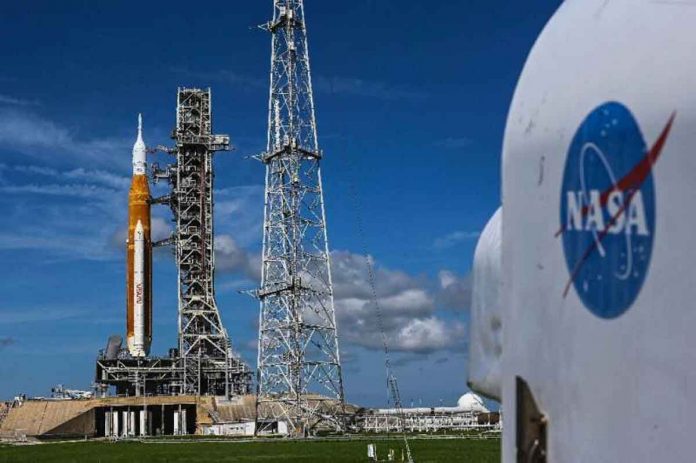Weather forecasts are favorable, and technical issues that delayed the launch earlier this week have been resolved, allowing NASA’s Moon rocket to finally blast off on Saturday.
Liftoff is scheduled for 2:17 p.m. local time (1817 GMT) from Florida’s Kennedy Space Center, with a two-hour delay possible if necessary.
The likelihood of favorable weather conditions within that window was 60% Thursday evening.
Forecast analyst Melody Lovin said at a press conference that the weather “looks good” and isn’t expected to be a “showstopper.”
NASA has also been working to resolve the technical issues that resulted in the launch being postponed at the last minute on Monday.
At first, it appeared that one of the rocket’s four main engines was overheating, but it turned out to be reading from a “bad sensor,” according to the rocket’s program manager, John Honeycutt.
In the future, incorrect data will simply be ignored.
After that, a fuel tank leak had to be repaired.
“We were able to find and correct what we believe is the source of the leak,” launch director Charlie Blackwell-Thompson said.
The Artemis 1 mission is a test flight without a crew. It will be the first launch of the Space Launch System (SLS) rocket, the most powerful in the world and a decade in the making.
“There’s no guarantee that we’ll be able to launch on Saturday,” Artemis mission manager Mike Sarafin said.
If the mission is approved on Saturday, the Orion capsule will spend 37 days in space, orbiting the Moon from about 60 miles (100 kilometers) away.
The Orion will then return future astronauts to the Moon, including the first woman and person of colour to walk on its surface, in 2025 at the earliest.
Artemis is named after the Greek god Apollo’s twin sister, after whom the first Moon missions were named. NASA’s new flagship programme aims to test technology that could one day be used to send humans to Mars.

